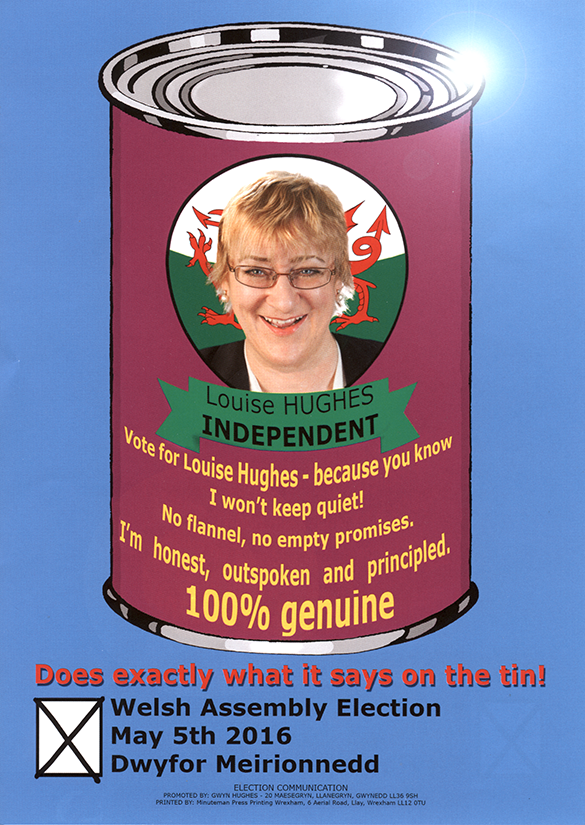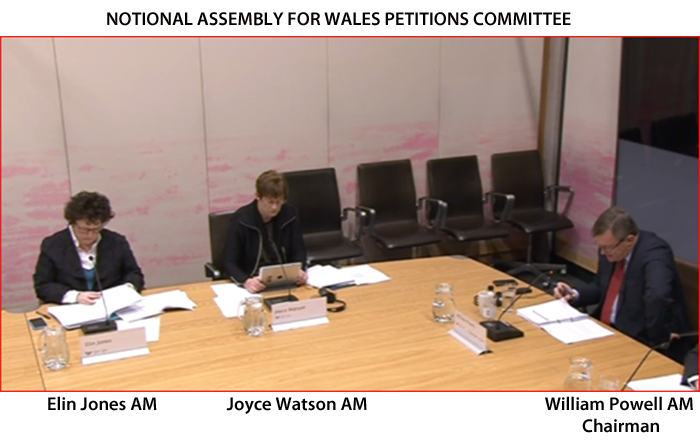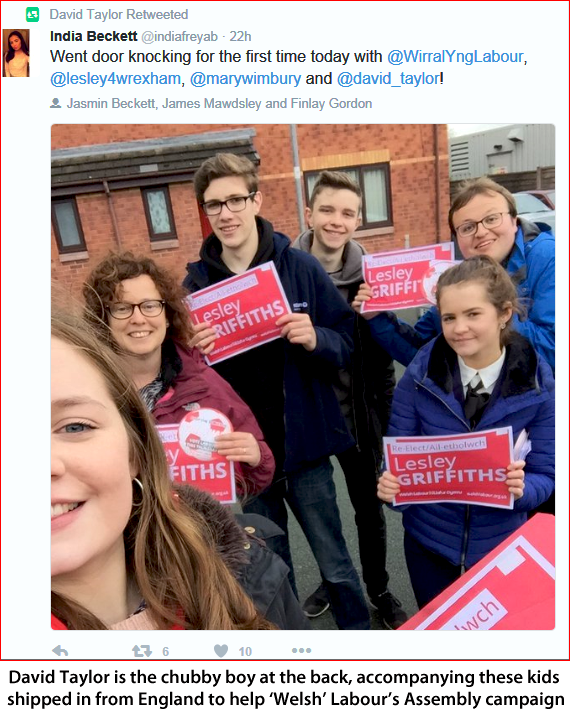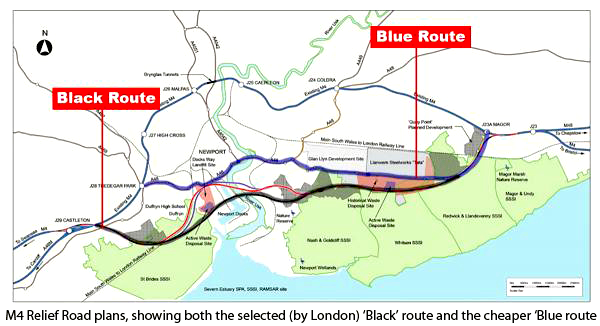This is the post I promised in which I shall tell you who I’m voting for on Thursday and why.
CONSTITUENCY SEAT
I live in the Dwyfor Meirionnydd constituency and my Assembly Member is Dafydd Elis Thomas, or Lord Elis Thomas if you prefer. I’ve known him for many years, and when I arrived home last Friday afternoon, there he was, large as life, talking to my missus at the front gate. When I got out of the car we had a little chat.
Now I don’t dislike Dafydd, but obviously we don’t see eye to eye on much . . . if anything. Even so, I’ve usually voted for him; but this time round I’m changing. It’s not a single utterance or deed that accounts for this decision, more a build-up of little things with nothing to maintain balance – hence my arrival at the tipping point.
Many of these little disaffections can be grouped under DET’s fondness for the Labour Party. His liking, even preference, for Labour surfaced again a week or so ago when he urged Plaid, Tory and Liberal Democrat supporters to give their second vote in the North Wales Police and Crime Commissioner election to the Labour candidate David Taylor. (Here’s a link to information on all five candidates.)
The explanation he gave at my front gate last Friday was the same he gave to the media – it was a calculated attempt to stop the UKIP candidate being elected on the second ballot.
In PCC elections, as in the Assembly elections, we get two votes, and if no candidate gets a majority first time round then the two with the most votes go into the second round, in which the second preferences of the eliminated candidates are allocated. I shall return to the PCC elections, and young Mr Taylor, later.
My Choice
So who am I voting for? (Drum roll!) Well the answer is that my vote will go to a shy, retiring local councillor with whom I have enjoyed many a profound political discourse in the aisles of Tywyn Co-op. I’m referring to Louise Hughes, who is standing as a (genuine) Independent.

Some may condemn me for ‘wasting’ my vote and arguing that, even if elected, Louse will be unable to achieve anything down Cardiff docks. I disagree.
What we have down Cardiff docks is a branch office of the London government, run by civil servants answering to their London masters. The politicians we elect may strut and puff, but apart from being allowed ‘gimmick’ legislation every now and again, they have little real control over anything. Much of the legislation the ‘Welsh’ Government claims as its own is nothing but English legislation with ‘(Wales)’ squeezed into the name. Perhaps their only real power is being able to dish out the lolly.
Yet far too much of this funding goes to Labour’s allies in the Third Sector in blatant patronage and cronyism, or else is ‘invested’ – ‘for the good of Wales’ – in Cardiff. One of the most disappointing results of devolved politics is how AMs of all parties end up following the party line and squandering money on Third Sector spongers like these.
Click on the link I’ve provided, scroll down to the second section, and ask yourself who, apart from Jill Tatman and her gang of colons, benefits from all the money they’ve been given? Or to put it another way, would Llandovery be any poorer, any more deprived, if she and her co-conspirators had been denied public funding?
I’m voting for Louise Hughes because if she is elected, and even if she is ignored, she’ll still be speaking for those that elected her. Though take my word for it, Louise can make herself very difficult to ignore.
Finally, and perhaps decisively, there is the dishonesty in Plaid Cymru asking the voters of Dwyfor Meirionnydd to vote for a candidate who could have the Plaid Cymru whip withdrawn if re-elected, and who might be in the Labour Party a few months down the line.
THE REGIONAL LIST
An Assembly Member who has received favourable mention in this blog is William Powell, the Liberal Democrat AM for the Mid and West Wales region. (That I’ve been complimentary to any AM may surprise a number of you.)
There are two reasons for this. First, Powell turns up at Cilmeri for the annual December commemoration of the slaying of Llywelyn ap Gruffydd (Y Llyw Olaf). You could argue that as a local AM he is obliged to attend. He’s not obliged to attend at all; I believe he comes because he shares some of the sentiments of those, like me, who have been going to Cilmeri for longer than we care to remember.
Perhaps William Powell should be an example to Plaid Cymru politicians whose enthusiasm for Cilmeri tends to waver, and can perhaps even be influenced by ‘Shippo’ down at the Wasting Mule. (Which is what he, his mate Phil Parry, and their Labour cronies would like to believe.)
My second reason for choosing Powell is his response to a petition I submitted to the Assembly a few months ago, and how his response contrasted with that of the Assembly’s Petitions Committee. I dealt with it back in January, in Local Democracy Endangered, here’s a brief summary.

I submitted a petition asking the ‘Welsh’ Government to consider intervening when it became clear that a chief executive, acting alone or in concert with others, was subverting the democratic process by acting beyond his powers and / or without consulting the elected councillors.
When my petition was discussed on January 19th the Petitions Committee consisted of Joyce Watson, the Labour AM for Mid and West Wales, and Elin Jones, the Plaid AM for Ceredigion. This is how I reported their ‘consideration’ of my petition:

I would expect no better from a Labour time-server like Watson, but against my better judgement I still thought Elin Jones might have had a contribution to make.
William Powell clearly understood what my petition was about, and tried to get a discussion going with, “It (the petition) does raise some very serious issues”. To no avail. Mesdames Watson and Jones had no intention of discussing anything that might have discomforted Mark James or embarrassed the ‘Welsh’ Government.
So for these and other reasons, and secure in the knowledge that the Liberal Democrats are very unlikely to gain more than a single list seat in Mid and West Wales, I shall be giving my second vote, my regional list vote, to the Liberal Democrats. Though had anyone other than William Powell topped the list my vote would have gone to another party, or I might not have used my second vote at all.
THE PCC ELECTION
Quite frankly, and despite what Dafydd El professes to fear, I believe the chances of UKIP winning in the second round of the North Wales PCC election are slim, and simply exposes again his Labour leanings. But even if there was a threat from UKIP I cannot see how anyone outside of Labour could possibly be attracted to David Taylor.
Taylor first came to the attention of an incredulous public as an acne-plagued hobbledehoy living somewhere near Rhuthun. This was in 2004, when he set up a website to “undermine Labour rebel Clare Short”. Note that the Daily Post account I’ve linked to tells us that 18-year-old Taylor was already secretary of the Clwyd West constituency party and also sat on Labour’s ‘Welsh’ executive.
The boy was obviously destined for greatness, and it duly arrived when he became advisor to Leighton Andrews AM in 2005. Though he soon embarrassed his party with another childish, and similarly unsavoury stunt, this time the infamous Aneurin Glyndŵr website. Around the same time he tweeted what might have been interpreted as a distasteful reference to the Hillsborough disaster.
Taylor also spent a short period as Special Advisor to Peter Hain, when the Man of Tan was briefly Governor-General, a post he lost in the 2010 general election. But Taylor seems to have stayed on in London as a ‘Senior Political Adviser’ to the Labour Party.

Since 2012, according to his Linkedin profile, he has been a director of a company called Leckwith, which has undergone a few changes of both name and address. It was originally known as Albacore Associates before morphing, in July 2012, into Westgate Strategy Ltd, before changing again, just a month later, to Leckwith Ltd. There were also physical moves from Cardiff to Newport to London. (Here’s the website.)
It’s reasonable to assume that this PR company was set up to capitalise on Taylor’s proven talent in the field of influencing people and also to exploit his contacts in the Labour Party. Though to judge by the accounts Leckwith has been slow to take off.
Taylor is also a non-executive director of Westgate Cyber Security Ltd of Newport, formerly London. This company also was incorporated in August 2012, but this is not a one-man band, for Taylor has a co-director, one David Wyn Jones, whose business background can be seen by clicking on his name under the ‘Officers’ tab. (Here’s the website.)
Having mentioned Leighton Andrews, I am indebted to ‘STaN‘ of Neath Ferret fame for reminding me that Andrews came quite late to the party, having been a leading light in the Liberal Democrats until just over a decade ago. Here’s a piece by Michael Meadowcroft lamenting Leighton Andrews’ departure. (I kid you not!)
I’ve also mentioned Peter Hain, and for information on the bête noire of the Boers, STaN‘s yer man.
David Taylor is a Labour insider of the worst kind. The type who joins the party before he starts shaving and spends the rest of his life in a cocoon, while determining what’s best for people of whose feelings and aspirations he knows nothing. He is exactly the kind of person – the professional politician – that either turns people off politics or else drives them towards more ‘colourful’ politicians.
Sorry, Dafydd, this is another wrong call. And if it was a straight fight between David Taylor and the UKIP candidate for North Wales PCC, and if I was forced to vote, then I couldn’t promise that I wouldn’t vote UKIP.
My Choice
I shall be voting for Arfon Jones as our PCC. As coppers, or ex-coppers, go, Arfon’s not bad, he was our village bobby for a while. And he’s never been afraid to speak out and question his former employer, something we encounter all too rarely.

In addition, having served and lived in Gwynedd, and also having spent many years on the other side of the region, Arfon knows the north from Holyhead to Bangor-on-Dee a lot better than most.
He’s also a sociable individual, going for the occasional drink at the Saith Seren, with which he has been long involved, and following Wrexham football club home and away, while not neglecting the rugby. He’s married, with children and grandchildren, in Wales and Scotland, so I wouldn’t hesitate to describe him as a ’rounded’, mature individual of many interests . . . unlike, I fear, David Taylor.
CONCLUSION
Looking at the wider picture, my reluctance to vote for Plaid Cymru at this election (over and above my longstanding criticisms) can be summed up in one word – Labour. And I’m not referring now to Lord Elis Thomas’ as yet unconsummated attraction.
It seems very likely that Labour and Plaid will be in coalition after Thursday’s election. That’s unless Plaid’s nightmare scenario materialises in which Labour can cobble together a coalition with two or three Lib Dem AMs, and possibly even a Green.
Now my views on the Labour Party generally, and ‘Welsh’ Labour in particular, are well known. A clue may be found in the title of my post, Why I Detest The ‘Welsh’ Labour Party. I urge you to read it.
What Wales desperately needs is wealth creators, visionaries prepared to take risks and by so doing create jobs and a wealthier country. But such people are frowned on by socialist parties like Labour and Plaid Cymru, for they cannot be controlled like a publicly-funded client class masquerading as an ‘economy’.
So generous is this system now that its fame has spread; spongers and leftie bandwagon-riders flock to Wales to take advantage of ‘our’ generosity. And the funding given to alleviate Wales’ poverty, to educate and train us, to build infrastructure, achieves nothing because it is squandered on a Third Sector the greater part of which achieves nothing beyond generous salaries and pensions for the charlatans involved.
Wales needs radical change; a new national mindset. None of the parties involved in this election provide anything other than tired and discredited ideas dressed up and repackaged. Consequently it matters little what emerges after Thursday.
The Welsh people deserve better. They just need to realise it. Who’s going to make them realise it? And how?
~ ~ ~ END ~ ~ ~











